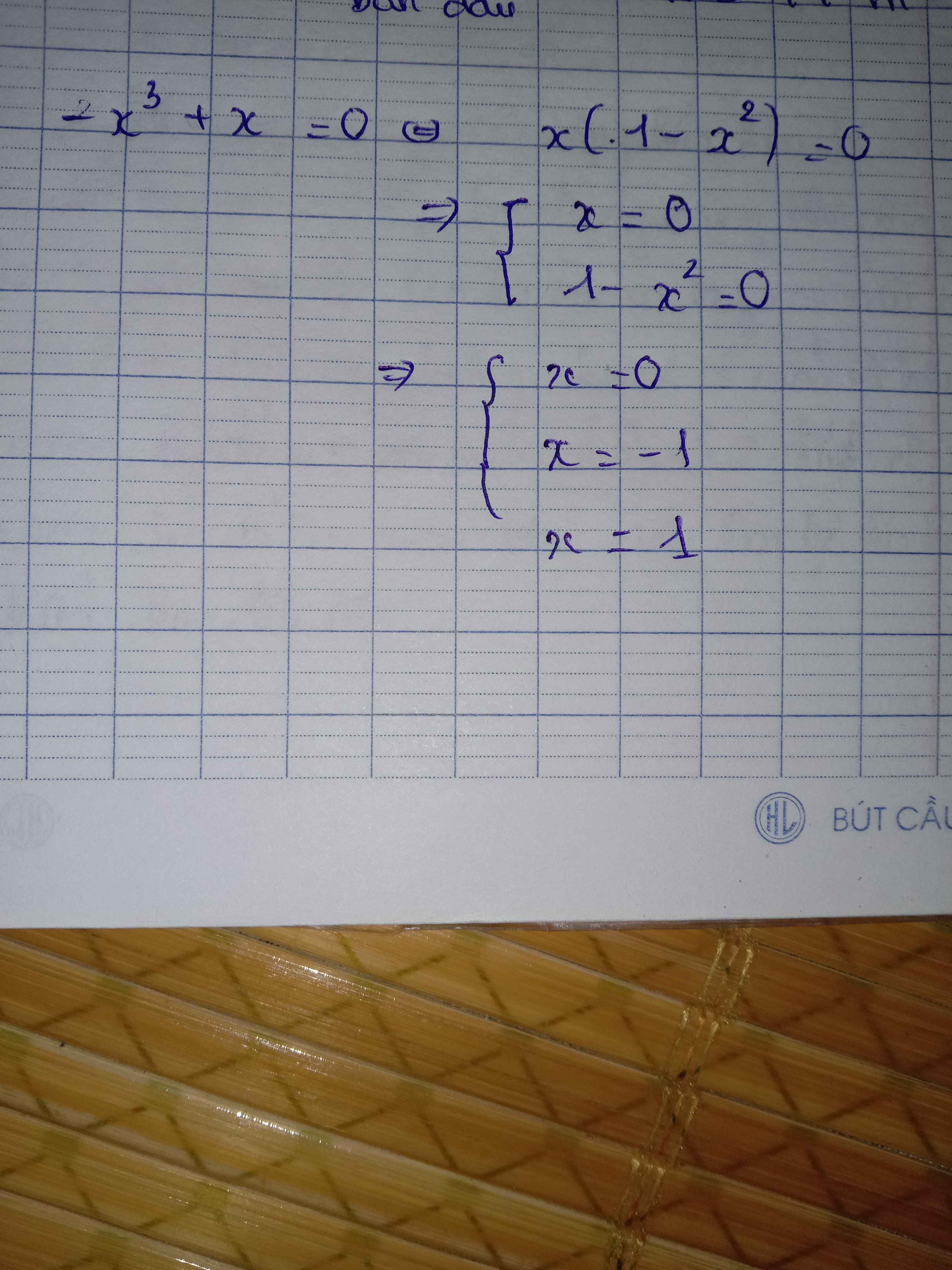
Hãy nhập câu hỏi của bạn vào đây, nếu là tài khoản VIP, bạn sẽ được ưu tiên trả lời.


Đặt P(x)=0
\(\Leftrightarrow x^2-3x-2=0\)
\(\text{Δ}=\left(-3\right)^2-4\cdot1\cdot\left(-2\right)=17>0\)
Do đó; Phương trình có hai nghiệm phân biệt là:
\(\left\{{}\begin{matrix}x_1=\dfrac{3-\sqrt{17}}{2}\\x_2=\dfrac{3+\sqrt{17}}{2}\end{matrix}\right.\)

\(f\left(x\right)=x^3-x+7\)
\(g\left(x\right)=-x^3+8x-14\)
\(\Rightarrow f\left(x\right)+g\left(x\right)=7x-7\)
Nghiệm của đa thức \(f\left(x\right)+g\left(x\right)=0\Rightarrow7x-7=0\)
\(\Rightarrow x=1\)

a: \(F\left(x\right)=x^3+2x^2+3x+4\)
\(G\left(x\right)=x^3-x^2+3x+1\)
b: \(F\left(x\right)+G\left(x\right)=2x^3+x^2+6x+5\)
\(F\left(x\right)-G\left(x\right)=3x^2+3\)

Cho A(x) = 0, có:
x2 - 4x = 0
=> x (x - 4) = 0
=> x = 0 hay x - 4 = 0
=> x = 0 hay x = 4
Vậy: x = 0; x = 4 là nghiệm của đa thức A(x)

Cho A(x) = 0, có:
x2 - 4x = 0
=> x (x - 4) = 0
=> x = 0 hay x - 4 = 0
=> x = 0 hay x = 4
Vậy: x = 0; x = 4 là nghiệm của đa thức A(x)

b.
\(B\left(x\right)=0\Rightarrow-18+2x^2=0\)
\(\Leftrightarrow2\left(x^2-9\right)=0\)
\(\Leftrightarrow2\left(x-3\right)\left(x+3\right)=0\)
\(\Leftrightarrow\left[{}\begin{matrix}x-3=0\\x+3=0\end{matrix}\right.\)
\(\Leftrightarrow\left[{}\begin{matrix}x=3\\x=-3\end{matrix}\right.\)
c.
\(C\left(x\right)=0\Leftrightarrow x^3+4x^2-x-4=0\)
\(\Leftrightarrow x^2\left(x+4\right)-\left(x+4\right)=0\)
\(\Leftrightarrow\left(x+4\right)\left(x^2-1\right)=0\)
\(\Leftrightarrow\left(x+4\right)\left(x-1\right)\left(x+1\right)=0\)
\(\Leftrightarrow\left[{}\begin{matrix}x+4=0\\x-1=0\\x+1=0\end{matrix}\right.\)
\(\Leftrightarrow\left[{}\begin{matrix}x=-4\\x=1\\x=-1\end{matrix}\right.\)

a) P(x)+Q(x)=x3+3x2+3x-2-x3-x2-5x+2
=\(2x^2-2x\)
b)P(x)-Q(x)=(x3+3x2+3x-2)-(-x3-x2-5x+2)
=x3+3x2+3x-2+x\(^3\)+x\(^2\)+5x-2
=\(2x^3+4x^2+8x-4\)
c) Ta có H(x)=0
\(\Rightarrow\)\(2x^2-2x\)=0
\(\Rightarrow\)2x(x-1)=0
\(\Rightarrow\left[{}\begin{matrix}2x=0\\x-1=0\end{matrix}\right.\)
\(\Rightarrow\left[{}\begin{matrix}x=0\\x=1\end{matrix}\right.\)
Vậy nghiệm của đa thức H(x) là 0;1

\(x^3+x=0\)
\(x\left(x^2+1\right)=0\)
\(\Rightarrow\orbr{\begin{cases}x=0\\x^2+1=0\left(sai\right)\end{cases}}\)
\(x=0\)
\(x^3+x=0\Leftrightarrow x\left(x^2+1\right)=0\Leftrightarrow x=0\) ( do x^2 + 1 > 0 \(\forall x\) )